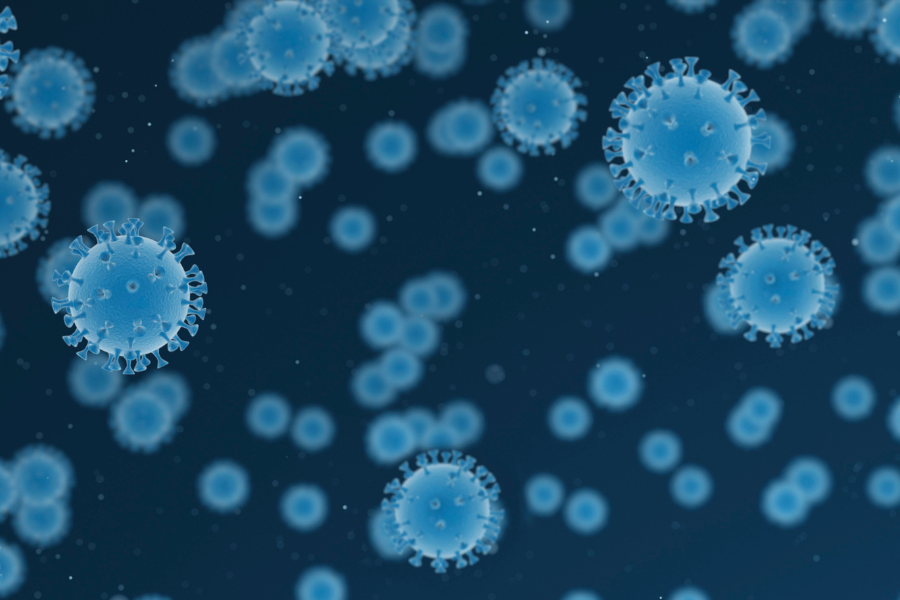
Information about Flu
Most experts believe that flu viruses spread person to person, mainly by tiny droplets made with people with the flu cough, sneeze, or talk.
- If you have cold and flu symptoms, please schedule with Tartan Testing, a local pharmacy, or UHS to get screened for COVID-19.
- If you are negative for COVID, it is possible you have the flu or a cold.
- You do not need to be tested for flu, but please stay home and isolate to reduce spreading to others, until 24 hours without a fever.
- You do not have to be seen by a medical provider for the flu unless you are severely ill or short of breath.
- Please wear a facial covering around others until you are symptom free.
- Wash your hands often to keep from spreading flu to others.
- Drink lots of fluids and take acetaminophen or ibuprofen as needed for pain and/or fever.
- If it is less than two days since you’ve been sick and high risk, please call UHS to ask about taking anti-viral medications.
- Feel free to call UHS nurses to ask for advice (412-268-2157, option 2).
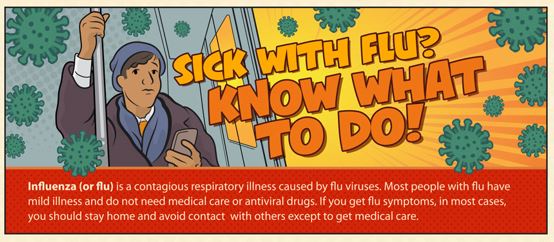
Sick with the flu? Know what to do!
Influenza (or flu) is a contagious respiratory illness caused by flu viruses. Most people with flu have mild illness and do not need medical care or antiviral drugs. If you get flu symptoms, in most cases, you should stay home and avoid contact with others except to get medical care.
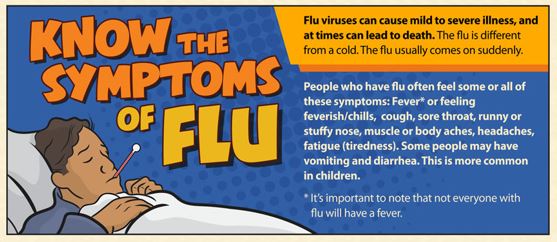
Know the Symptoms of Flu
Flu viruses can cause mild to severe illness, and at can lead to death. The flu is different from a cold. The flu usually come on suddenly.
People who have the flu often feel some or all of these symptoms: fever* or feeling feverish/chills, cough, sore throat, runny or stuffy nose, muscle or body aches, headaches, fatigue (tiredness). Some people have vomiting and diarrhea, which is more common in children.
*It's important to note that not everyone with flu will have a fever.
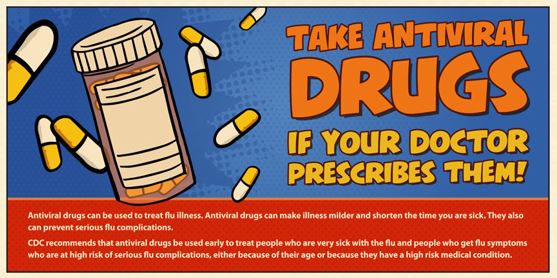
Take antiviral drugs if your doctor prescribes them.
Antiviral drugs can be used to treat flu illness. Antiviral drugs can make illness milder and shorten the time you are sick. They also can prevent serious flu complications.
CDC recommends that antiviral drugs be used early to treat people who are very sick with the flu and people who get flu symptoms who are at high risk of serious flu complications, either because of their age or because they have a high risk medical condition.
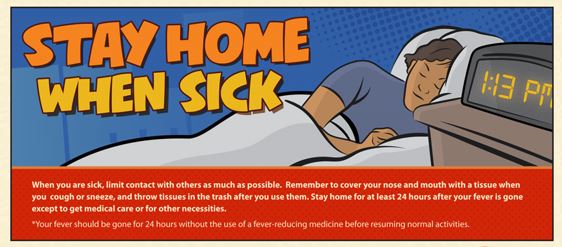
Stay home when sick.
When you are sick, limit contact with others as much as possible. Remember to cover your nose and mouth with a tissue when your cough or sneeze, and throw tissues in the trash after you use them. Stay home for at least 24 hours after your fever is gone except to get medical care or for other necessities.
Your fever should be gone for 24 hours without the use of a fever-reducing medicine before resuming normal activities.
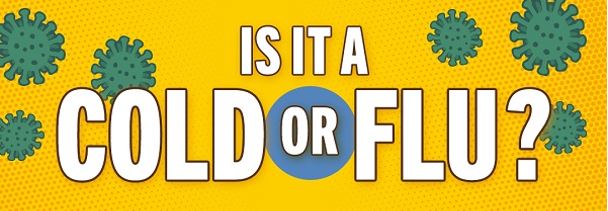
| SIGNS & SYMPTOMS | COLD | FLU |
|
Symptom onset |
Gradual | Abrupt |
| Fever | Rare | Usual |
| Aches | Slight | Usual |
| Chills | Uncommon | Fairly common |
|
Fatigue, weakness |
Sometimes | Usual |
| Sneezing | Common | Sometimes |
| Chest discomfort, cough | Mild to moderate | Common |
| Stuffy nose | Common | Sometimes |
| Sore throat | Common | Sometimes |
| Headache | Rare | Common |
